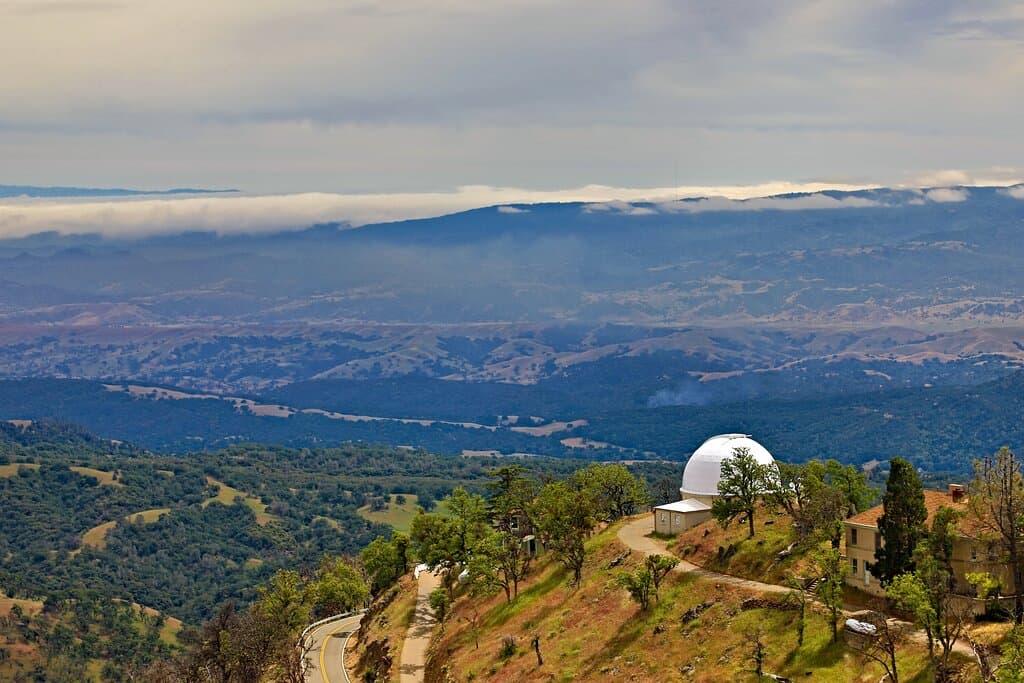
Lick Observatory
Iconic mountaintop observatory with powerful telescopes, rich history, and stunning panoramic views of the Bay Area.

Highlights
Must-see attractions

Social
From TikTok & Reddit
Best Time
Daytime views & tours

Lick Observatory
Best Time
Daytime views & tours

Highlights
Must-see attractions
Iconic mountaintop observatory with powerful telescopes, rich history, and stunning panoramic views of the Bay Area.
"An amazing historical place with lots of scientific discovery and stunning panoramic views over the Bay Area."
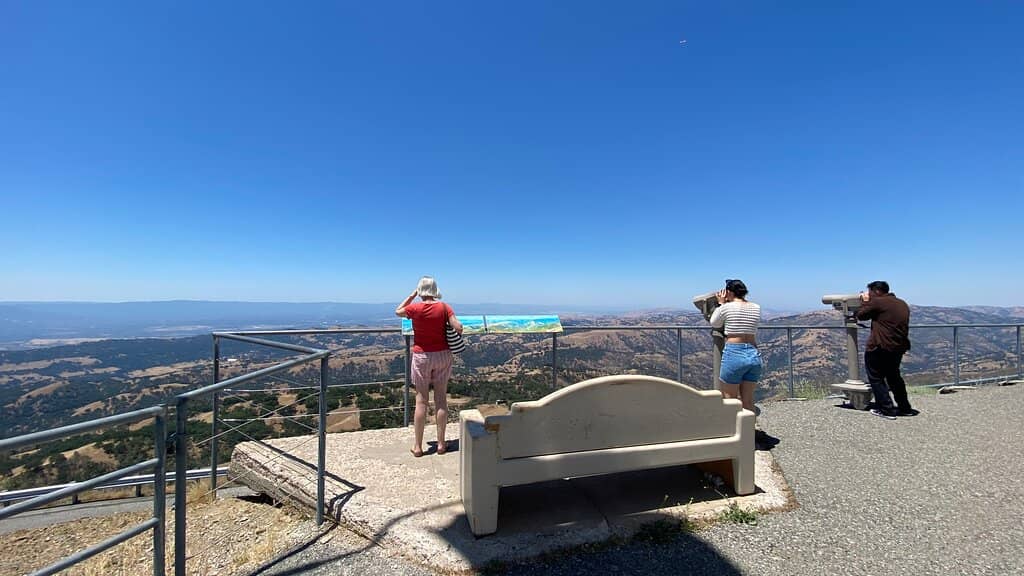
Check Official Hours First
Hours can vary; always confirm on the Lick Observatory website before you go. :calendar:
Drive Carefully Up Mt. Hamilton
The road is winding and popular with cyclists. Allow ample time and be alert. :oncoming_automobile:
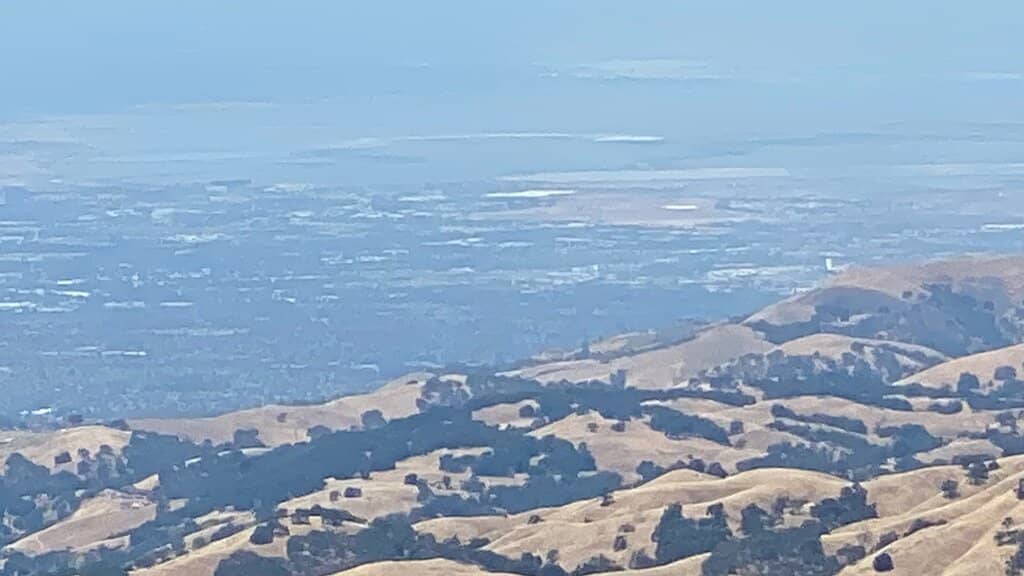
Highlights
Discover the most iconic attractions and experiences
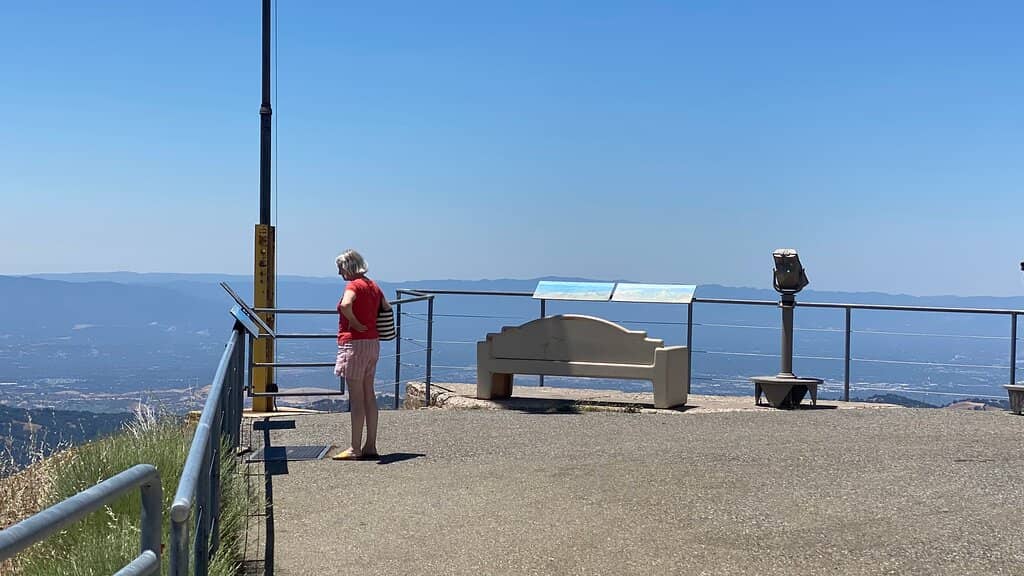
The Great Lick Refractor
Main Observatory Building
Gaze through the historic 36-inch refractor, the first telescope of its kind placed on a mountaintop.
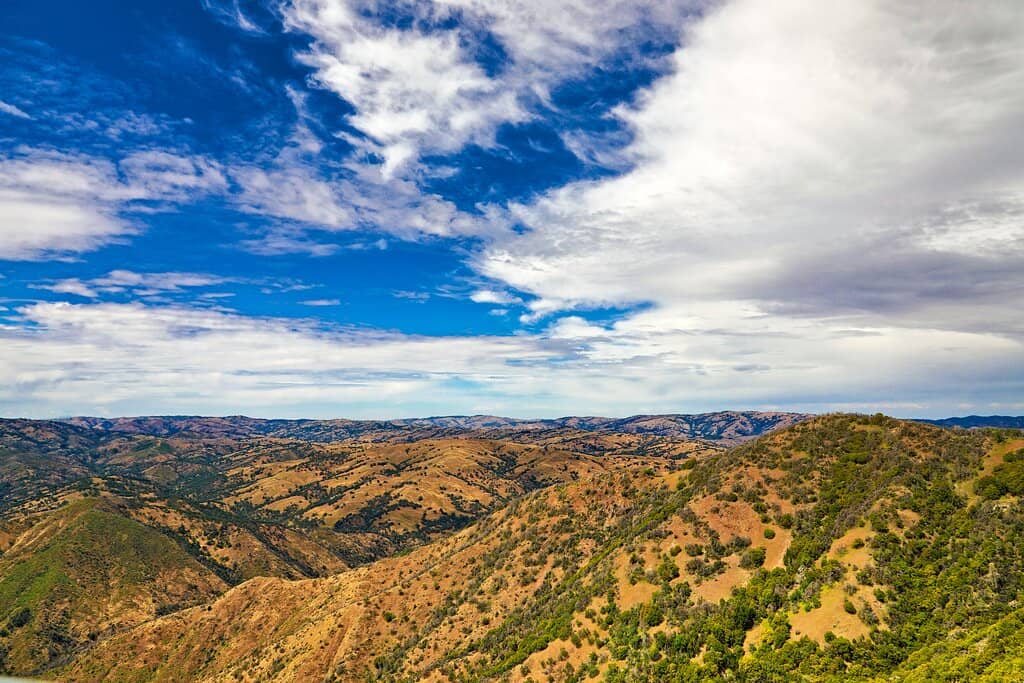
Panoramic Bay Area Views
Summit of Mount Hamilton
Soak in breathtaking, sweeping vistas of the San Jose and the greater Bay Area from this elevated vantage point.
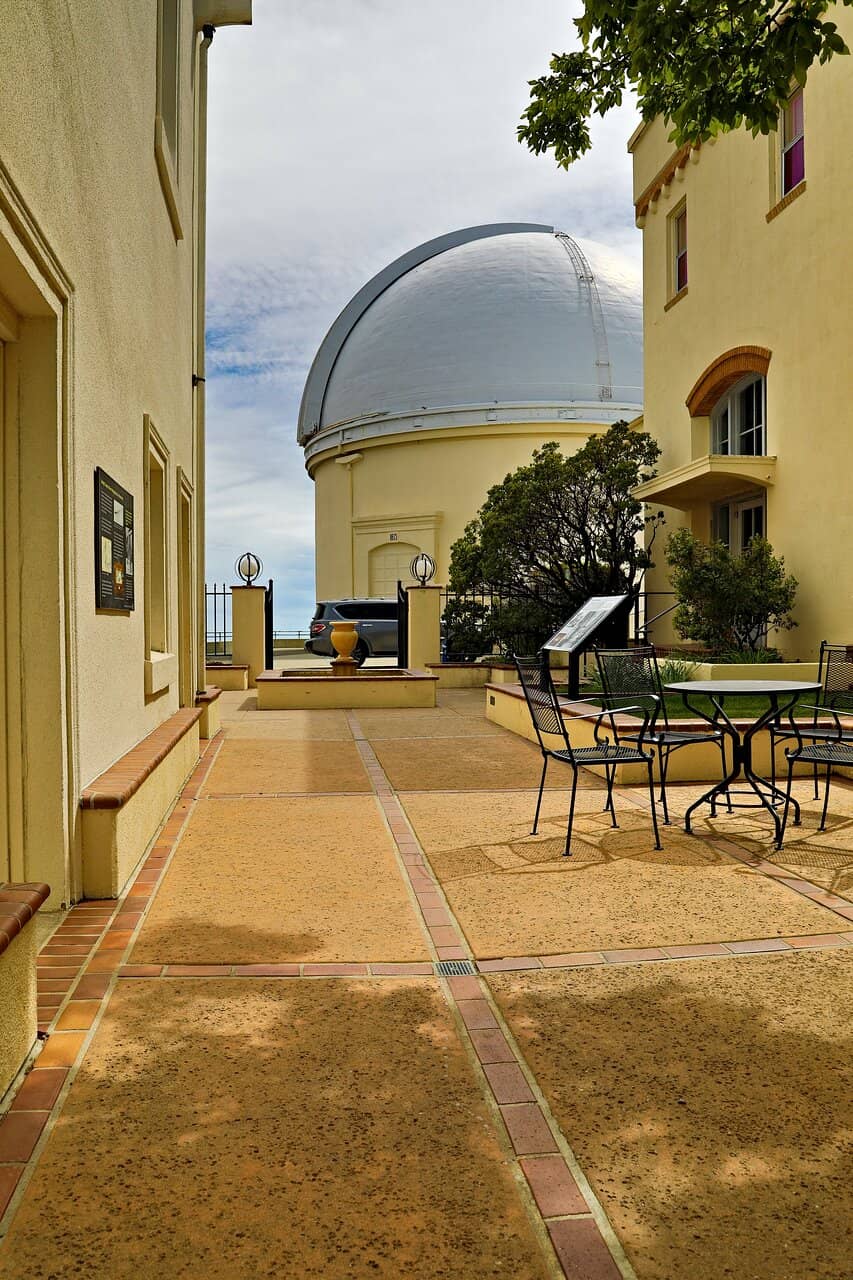
Cosmic Discoveries
Exhibits and Telescope Domes
Explore exhibits detailing the observatory's rich scientific legacy and glimpse the powerful telescopes used for research.
Plans like a pro.
Thinks like you
Planning Your Visit
Timing is Everything
The Scenic Drive
Best Times
Insider Tips
from TikTok, Instagram & Reddit
Check Official Hours First
Hours can vary; always confirm on the Lick Observatory website before you go. :calendar:
Drive Carefully Up Mt. Hamilton
The road is winding and popular with cyclists. Allow ample time and be alert. :oncoming_automobile:
Book Evening Events Early
Nighttime stargazing events are popular and require advance ticket purchase. :ticket:
Dress in Layers
Temperatures can drop significantly at the summit, even on warm days. :cloud:
Tips
from all over the internet
Check Official Hours First
Hours can vary; always confirm on the Lick Observatory website before you go. :calendar:
Drive Carefully Up Mt. Hamilton
The road is winding and popular with cyclists. Allow ample time and be alert. :oncoming_automobile:
Book Evening Events Early
Nighttime stargazing events are popular and require advance ticket purchase. :ticket:
Dress in Layers
Temperatures can drop significantly at the summit, even on warm days. :cloud:
Bring Binoculars
Enhance your stargazing experience and enjoy closer views of celestial objects. :star2:
What Travellers Say
Reviews Summary
Visitors rave about the breathtaking panoramic views of the Bay Area and the historical significance of the Lick Observatory. The chance to see impressive telescopes and learn from knowledgeable staff during tours and evening events is a major highlight. Some visitors found the gift shop lacking in specific historical books.
"I recently visited the historic Lick Observatory and was amazed by the architecture, the views, and the scientific legacy preserved here. The 36-inch Lick Refractor Telescope is a masterpiece and fascinating to see up close — it’s incredible to imagine how much astronomical history was made through it. The guided tour was insightful, and the staff were knowledgeable and passionate. Walking down the long corridors lined with vintage photographs gave me a nostalgic feeling, almost like stepping back in time. The dome and telescope setup are beautifully maintained and offer a great learning experience for anyone curious about space and astronomy. Also, the panoramic views of the Bay Area from the observatory are breathtaking. I highly recommend this visit for science enthusiasts and photographers alike. A true gem in California’s scientific heritage!"
Uday Ramesh
"Our evening at Lick Observatory felt like stepping into the heart of the cosmos. We learned about distant stars, each one a sparkling story in the vast night sky. The view was nothing short of magical—an endless expanse of glittering lights that left us humbled and inspired. Every volunteer we met was a guiding star in their own right: warm, patient, and endlessly generous with their knowledge. They didn’t just teach us about the universe—they made us feel like we belonged in it. Thank you for turning a night under the stars into a memory we’ll treasure forever."
verenice Sanchez
"What an amazing historical place. Lots of scientific discovery over the decades.
We got to look through the big refractor. The first ever to be placed on a mountain top. It was the world's largest, now the second largest.
We came for the Friday ticketed event, then returned the following morning and spent the day wandering about the mountain top and learning.
The gift shop was a bit of a disappointment. There were no books available about James Lick or the history of the Observatory. When we asked the gift shop person if any books were available, we were told that there were none published. Fortunately, we happened upon a staff astronomer. He gave us the titles of two books we could order via the web. (Eye on the sky, and James Lick's monument)
Amazing views, though there was a lot of forest fire smoke obscuring the Bay area.
As we made 2 complete round trips that means we went around 1460 corners! Once at night. We used Quimby road three times, to add to the fun."
Dan C.
What People Like
What People Dislike
Frequently Asked Questions
🚇 🗺️ Getting There
The Lick Observatory is located atop Mount Hamilton, about 14 miles east of downtown San Jose. The drive is approximately an hour and involves navigating Mount Hamilton Road (Highway 130), which is known for its many curves. Some visitors suggest using Quimby Road for a different route.
The drive is scenic but challenging, with over 360 curves on the road up to the summit. It's popular with motorcyclists and cyclists, so drivers should be extra cautious.
Currently, there is no direct public transportation to Lick Observatory. Visitors typically drive their own vehicles or arrange private transportation.
Parking is available at the observatory. Visitors often share that the drive itself is part of the experience, with many scenic overlooks along the way.
While specific accessibility details should be confirmed directly with the observatory, the main visitor areas are generally accessible. The historic nature of some parts may present challenges.
🎫 🎫 Tickets & Entry
General admission to the observatory grounds and exhibits is often free. However, special evening events, like stargazing programs, require advance ticket purchase and can sell out quickly.
The observatory is typically open to the public on Saturdays and Sundays from 12 PM to 5 PM for tours. Evening events have separate, specific timings. Always check the official Lick Observatory website for the most current hours and event schedules.
Yes, guided tours are usually offered on Saturdays and Sundays, often on the hour and half-hour, focusing on the history and telescopes. Evening events also include educational components.
Yes, Lick Observatory hosts special ticketed evening events for stargazing and viewing through their telescopes. These are incredibly popular and require booking in advance.
General daytime visits are often free. However, special evening programs and tours may have associated ticket costs. It's best to check their official website for the latest pricing information.
🎫 🔭 Onsite Experience
Visitors can explore the historic observatory buildings, learn about astronomical research, view impressive telescopes like the 36-inch Lick Refractor, and enjoy stunning panoramic views of the Bay Area. Evening events offer unique stargazing opportunities.
The most famous is the historic 36-inch Lick Refractor, one of the world's first large mountain-top telescopes. The observatory also houses other research telescopes, including the Katzman Automatic Imaging Telescope (KAIT).
Photography is generally permitted in public areas, and many visitors capture the stunning architecture and views. Special considerations may apply for astrophotography during evening events.
Founded by James Lick, it was one of the world's first mountain observatories, built in the late 1800s. It has a rich history of scientific discovery and was instrumental in early astronomical research.
Yes, the observatory features exhibits detailing its history, scientific achievements, and astronomical concepts. You can see vintage photographs and artifacts.
🍽️ 🍽️ Food & Dining
There are no on-site restaurants or cafes at Lick Observatory. Visitors are advised to bring their own food and drinks, especially if planning to stay for an extended period or an evening event.
Yes, visitors are welcome to bring their own picnic lunches and snacks to enjoy at designated areas.
Yes, there is a gift shop. However, some visitors have noted a lack of books specifically about James Lick or the observatory's history.
📸 📸 Photography
The panoramic views of the Bay Area are a major draw for photographers. The observatory's unique architecture, especially the domes, also makes for striking shots.
Astrophotography is a popular activity, especially during evening events. However, it's essential to be mindful of other visitors and any specific rules regarding equipment and light pollution.
Sunrise and sunset offer dramatic lighting for the landscape and observatory. Daytime provides clear views of the Bay Area, while nighttime is ideal for capturing the stars.
While not explicitly advertised, the observatory's unique setting and historical significance make it a prime location for photographers. Check their events calendar for any special photography-related activities.
A wide-angle lens is great for capturing the expansive views and architecture. For astrophotography, a camera with good low-light performance and a sturdy tripod are essential.
For Different Travelers
Tailored advice for your travel style
👨👩👧 Families with Kids
For an even more magical experience, look into booking tickets for their special evening stargazing events. These events are often designed to be accessible and awe-inspiring for all ages, offering a chance to see celestial wonders through powerful telescopes. Ensure you check the observatory's website for any age restrictions or recommendations for these programs.
🔭 Astronomy Enthusiasts
Don't miss the chance to explore the exhibits detailing the observatory's rich history and scientific contributions. If you're interested in astrophotography, the dark skies and unique architecture provide incredible opportunities. Consider booking a guided tour to gain deeper insights from knowledgeable staff and volunteers who are passionate about sharing their love for astronomy.
📸 Photographers
For night photographers, the dark skies of Mount Hamilton are ideal for capturing the Milky Way and other celestial phenomena. During evening events, you can photograph the telescopes themselves, often illuminated against the night sky. Remember to bring a tripod and a camera with good low-light capabilities for the best results. Be mindful of any restrictions on equipment during public tours or events.
Deep Dives
In-depth insights and expert knowledge
The Journey Up Mount Hamilton
Allow at least an hour for the drive from San Jose, and be prepared for the significant change in elevation and temperature. The road's reputation for its many curves has even led to it being featured in local driving and cycling challenges. Planning your drive to coincide with sunrise or sunset can offer particularly spectacular photographic opportunities.
While the drive is an adventure, it's also a reminder of the observatory's remote and dedicated location, chosen for its clear skies and minimal light pollution. The effort to reach the summit is rewarded with unparalleled views and a sense of accomplishment.
A Legacy of Astronomical Discovery
The observatory is home to several powerful telescopes, most notably the historic 36-inch Lick Refractor. This telescope was the largest in the world when it was installed and remains a marvel of engineering. Other instruments, like the Katzman Automatic Imaging Telescope (KAIT), continue to contribute to modern astronomical research. The dedication of the scientists and staff, who often work through the night, underscores the observatory's ongoing commitment to exploring the universe.
Beyond its scientific contributions, Lick Observatory serves as an educational beacon. Public programs and tours offer a glimpse into the world of astronomy, inspiring future generations of scientists and space enthusiasts. The blend of historical significance and cutting-edge research makes Lick Observatory a truly unique destination for anyone interested in the stars and our place in the universe.
Experiencing the Night Sky
During these events, knowledgeable volunteers and staff act as 'guiding stars,' generously sharing their passion and expertise. They don't just teach about the universe; they create an immersive and welcoming experience. Attendees can look through powerful telescopes, learning about distant stars and celestial phenomena. The clarity of the night sky from Mount Hamilton, far from city lights, makes these stargazing sessions truly magical.
It's crucial to book these evening events well in advance, as they are highly sought after and sell out quickly. The experience is often described as a cherished memory, turning a night under the stars into something truly unforgettable.

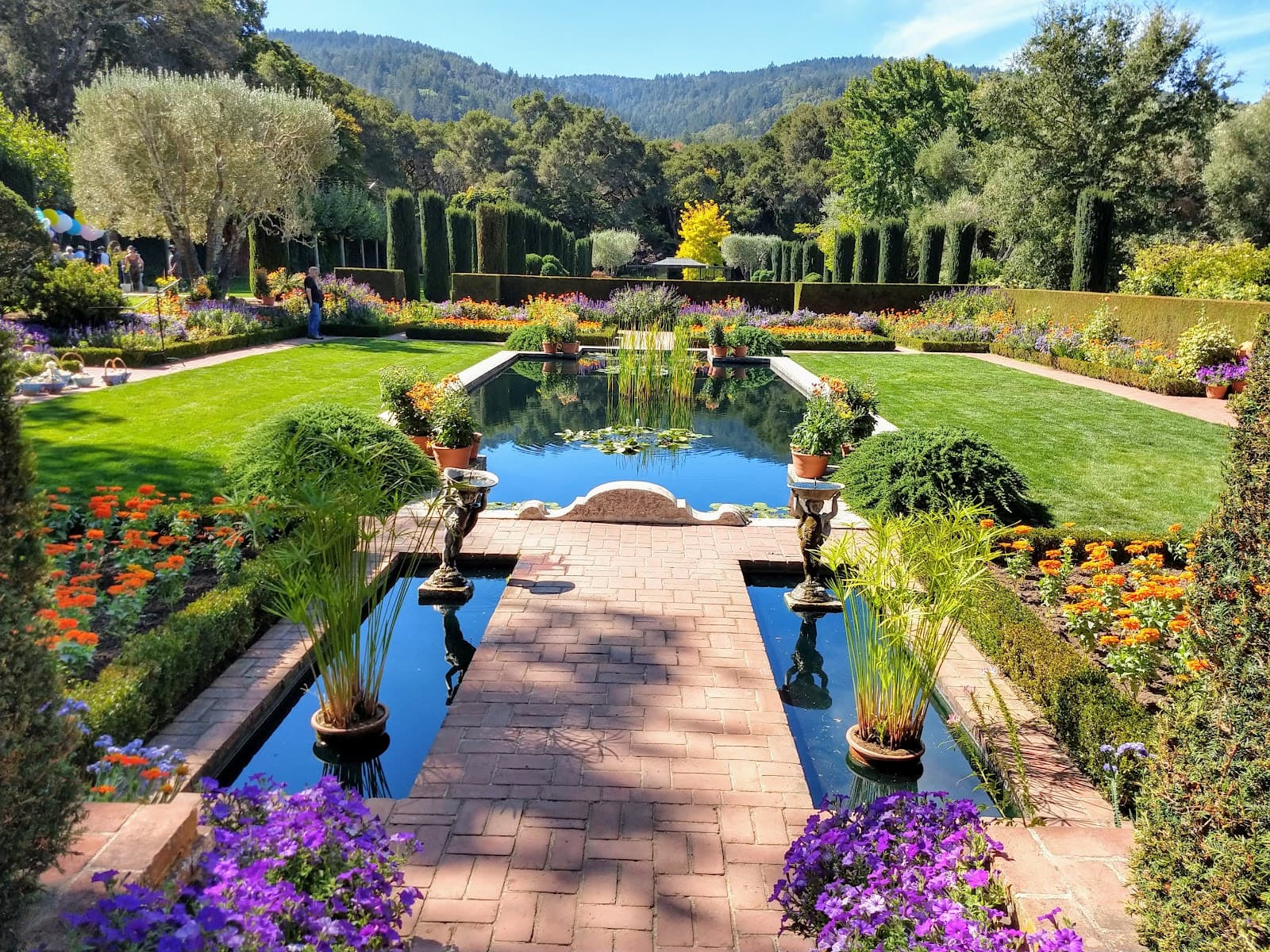




Social
from TikTok, Instagram & Reddit